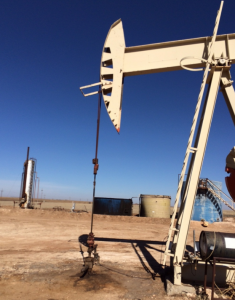
A royalty clause in an oil and gas lease specifies the amount of royalty to be paid to the Lessor (the owner of the leased mineral rights) and sets forth terms and conditions of payment. A royalty is an agreed upon percentage of hydrocarbon production from the lease, minus the Lessee’s post-production costs, unless the Lessor is entitled to a “cost free” royalty. “Post-production costs” include the costs to handle, process and transport the hydrocarbon production – after it leaves the ground. By definition, the royalty never bears “production costs” – the below-ground related costs to drill, complete and maintain producing wells. The Lessee pays the royalty to the owner of the mineral rights (normally, the Lessor in the lease). Traditionally, royalty is 1/8 to 1/4 of production, however it can be any fraction of production depending on the royalty clause in the specific lease. Landowners, who are about to become Lessors, should negotiate for as high of a royalty as they can. Also, they should negotiate for “cost free” royalties.
A landowner can also insert a clause in the lease to take royalty either “in kind” or “in value.” Taking royalty “in kind” means that the Lessor can take physical possession of the oil, gas or liquids once they leave the ground, and he may market the production himself. Taking royalty “in value” – the most common form of royalty – means the Lessor allows the Lessee to market the production and to pay the Lessor a percentage share. These two options allow the best of both worlds: when the market price rises above the prices paid by the Lessee, the Lessor can take his or her share and seek a more lucrative marketing outlet.
Taking in kind is particularly useful for oil. The measurement of oil for royalty payments and the transparent midstream market – for pipelining, trucking, and selling the oil – promote ease and accessibility for royalty owners (Lessors) who wish to market their own oil. Taking gas in kind is more difficult. Most royalty owners lack sufficient volumes of royalty gas in order to attract buyers (pipelines, and processing plants) to enter contracts for gas sales. Gas royalty owners usually are better off monitoring carefully their royalties in value, rather than taking gas in kind.
If you have any questions regarding your current lease, or need assistance in drafting an oil and gas lease, Holmes PLLC can help. Holmes PLLC is a premier law firm that specializes in oil and gas work. The firm understands particularly well the “in kind” royalty and “in value” royalty provisions in oil and gas leases. The firm can enforce fair payments of royalties paid in value, and the firm can assist royalty owners wishing to take their production in kind in order to market the same.
